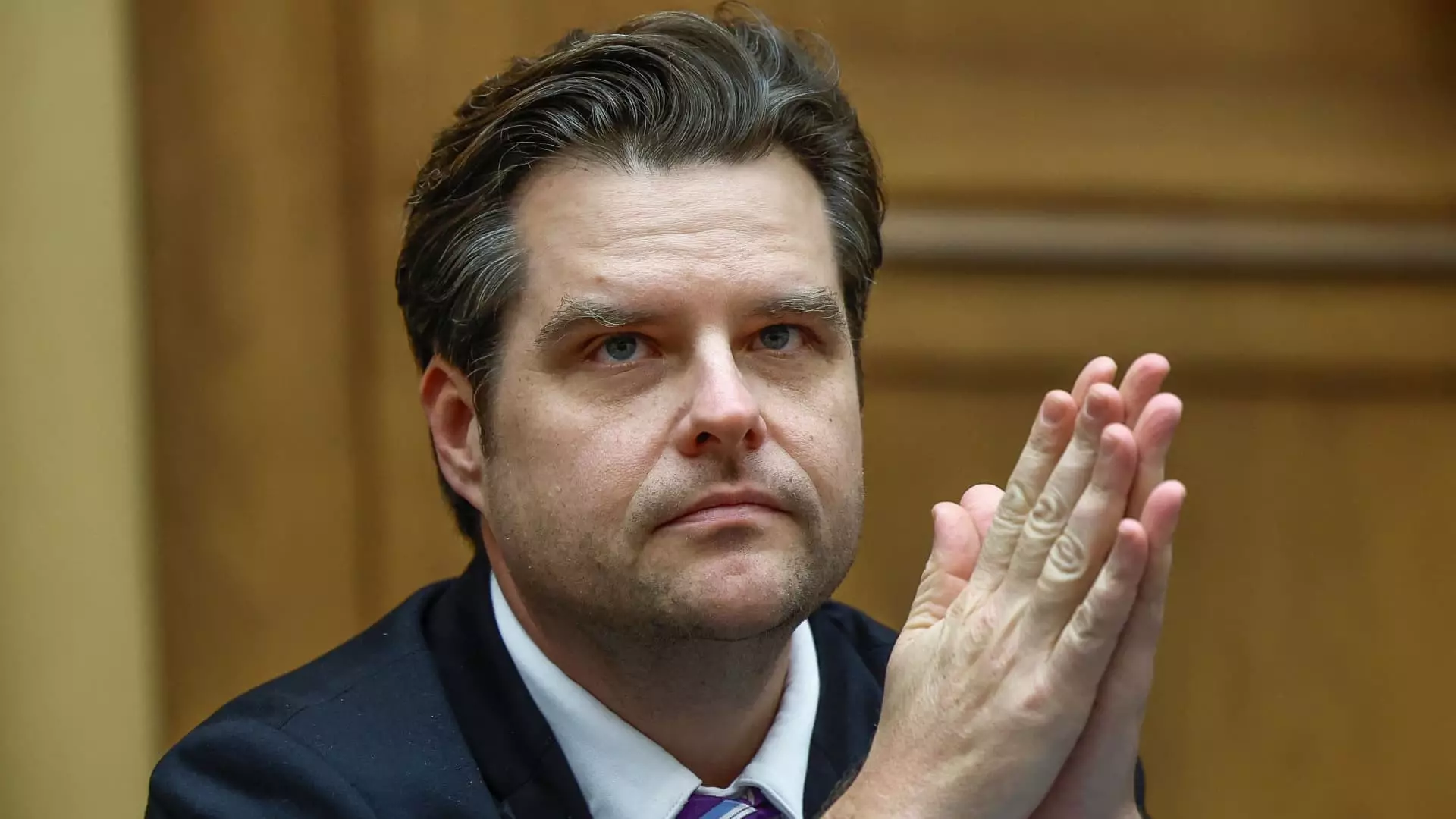The political landscape can often become a stage for scandals, yet some controversies strike deeper and evoke more significant societal questions than others. The former Republican Congressman Matt Gaetz has become a figure shrouded in allegations of misconduct, leading to revelations that could tarnish not just his personal reputation, but also the integrity of the political institutions he represented. Recent findings from the House Ethics Committee have brought to light a series of troubling behaviors that raise significant concerns about ethics in politics, sex, and power dynamics.
On Monday, the House Ethics Committee released a comprehensive 42-page report detailing substantial evidence against Matt Gaetz, indicating that the former lawmaker engaged in illicit activities during his tenure in Congress. The report reveals Gaetz’s involvement in sexual relations with a 17-year-old girl in 2017 and highlights that he also reportedly paid women for sex regularly while serving in office. Such conduct not only contravenes moral and social norms but also breaches House Rules, as outlined by the committee.
Between 2017 and 2019, Gaetz was found to have used illegal drugs, including cocaine and ecstasy. The evidence points to a disturbing pattern of behavior that reflects not just a personal moral failure but an ethical lapse that taints the very halls of Congress. Additionally, the conclusion of the committee revealed that Gaetz accepted gifts beyond permissible limits, including an extravagant trip to the Bahamas, raising questions about transparency and accountability among public servants.
While the committee’s findings were extensive, they did not provide enough evidence to conclude that Gaetz violated federal sex-trafficking laws. Although he was found to have caused the transportation of women across state lines for commercial sex purposes, the committee established that there was no evidence to indicate that these women were underage at the time of travel or coerced into these acts. This nuanced distinction reveals the complexity of the legal frameworks surrounding such cases, where societal norms often clash with legal definitions.
Despite the lack of sex-trafficking charges, the committee’s report unambiguously condemned Gaetz’s behavior as discrediting to the House of Representatives. Their assertion reflects a broader critique of a system where power can be misused, raising essential questions about the systemic reforms needed to deter such behavior among politicians.
In reaction to the report’s release, Gaetz has vehemently denied the allegations, claiming innocence while framing the investigation as politically motivated. His assertion that the timing of the report’s release—so close to Christmas—was a deliberate act to undermine him invites skepticism. The former congressman’s denial indicates a common defensive strategy in the political arena; when facing scandals, the focus often shifts from the actions in question to accusations of unfair treatment.
Despite proclaiming his innocence, Gaetz’s arguments have become increasingly undermined by the mounting evidence against him. His withdrawals from roles that could influence the justice system, such as his brief candidacy for U.S. Attorney General, showcase how political narratives can quickly unravel. Supporters of Gaetz may see him as a martyr to a political witch hunt, but the allegations against him transcend personal vendetta—they emphasize a broader failure within political accountability and culture.
As the Gaetz controversy continues to unfold, it serves as a wake-up call for both political institutions and voters. The findings of the Ethics Committee highlight systemic weaknesses in the accountability mechanisms of Congress. For the integrity of democratic institutions, it is critical that robust frameworks are established to check unethical behaviors among elected officials.
Moreover, Gaetz’s case illuminates the need for cultural change within political spheres to prioritize ethical conduct over popularity or party allegiance. Voters must demand transparency and accountability as fundamental characteristics of their representatives, and penalties for unethical behavior must be enforced rigorously.
The revelations about Matt Gaetz’s conduct shed light on a disturbing intersection of power, sexuality, and ethics within U.S. politics. As Congress grapples with these findings, the hope is that the lessons learned will pave the way for reforms that restore public trust. For those who occupy positions of power, the message must resonate: ethical governance is not simply an expectation; it is a necessity. It is through this lens that society can envision a political future marked not just by ambition, but by integrity and respect for the very institutions that govern our democracy.

